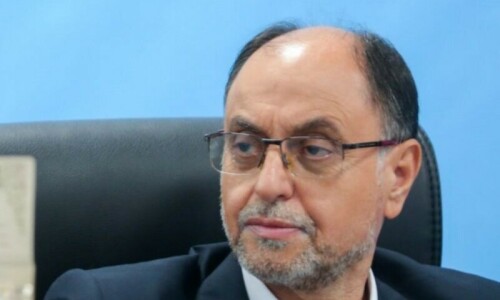THERE is a virtual genocide going on right now, under our very noses, largely ignored and seldom talked about. In 2003, two wars were unleashed upon the world and true to their nature, each caused much suffering. One, infamously, perhaps arrogantly, was announced as 'Shock and Awe', while the other went largely unnoticed, in a seemingly uninteresting part of the world. Both ravaged human lives. The war in Iraq caught the media's attention, with journalists embedded in the battlefield, bringing images and stories to our living rooms. The conflict in Darfur, however, was largely overlooked.
Still, a few groups devoted to serving humanity persisted, trying to raise the issue and give it the attention it deserved. A few from the entertainment industry caught sight of the issue, and tried to use their celebrity status to focus more attention of the powers that be. Finally, when it seemed like these organisations had managed to stir UN conscience by referring the matter to the Security Council, Amr Moussa, secretary general of the Arab League, shocked the world by absolving Sudan's president of any wrongdoing.
Like many conflicts, this catastrophe is man-made, deliberate and orchestrated by the Sudanese government to inflict collective punishment on a population. By conservative UN estimates, it has taken more than 300,000 lives and displaced nearly 2.5 million people, at the rate of nearly a 1,000 per day. Not only is the government of Sudan committing atrocities against its own people in Darfur, it is actively preventing aid from getting to the affected civilians.
The Sudan government represents the politically powerful, wealthy north of the country; Darfur lies on the western periphery, impoverished and thus resentful. Feelings of being disfavoured nurtured rebel sentiment, and triggered a civil war which has dragged on for years. Time has splintered the rebel groups into various factions, some along tribal alliances. As if internal strife were not enough, neighbouring Chad and Sudan have entered into a proxy war in the region, using and arming militias to fight each other, and China's investments in the Sudanese oil sector have further complicated the situation. In short, there is a mess disrupting innocent lives.
One can debate the reasons for grievances, but what is beyond doubt, is the cruelty of the ruling government. It is fighting mercilessly, using disproportionate force, and employing tactics of systematic brutality aimed at subjugating the people in Darfur.
The Sudanese air force has bombed Darfur, and their armed forces have hired militias known as Janjaweed to carry out horrific acts to terrorise civilians. These acts include a scorched-earth policy which creates conditions of deprivation and slowly starves a population to submission or death. While the hostilities continue, dissonance adds to civilian suffering. Millions of non-combatants have had their lives destroyed.
The government of Sudan continued its relentless tactics, and stepped up harassment and violence against workers providing humanitarian aid, until finally the UN Security Council took notice and referred the case to the International Criminal Court. The ICC issued arrest warrants for President Al-Bashir and Ahmad Harun, leader of the Janjaweed, citing reasons of genocide, crimes against humanity and war crimes. Organisations including the UN, Human Rights Watch, ICC and the independent media have stood on a mountain of evidence and pointed a finger at Sudan for its callous campaign.
Taking the stance of defending President Omar Al-Bashir is ridiculous, bordering on the laughable. Amr Moussa spoke on behalf of the Arab League in Doha and shielded President Bashir, followed by a strong statement for the Palestinian cause, and against the Gaza invasion carried out by the Israelis. Such a communiqué has its moral authority diluted. It would be far more prudent to recognise the evidence presented, and forge a multilateral approach towards the warring parties, exerting pressure on rebuilding a national consensus that leads to the resolution of the conflict.
We must use the same yardstick to measure our own as we do others. If we accuse others of using heavy-handed tactics against civilians, then we must not condone the behaviour of our own for similar behaviour. Aleksandr Solzhenitsyn once said, “The line separating good and evil passes not through states, nor between classes, nor between political parties either, but right through every human heart, and through all human hearts.”











































Dear visitor, the comments section is undergoing an overhaul and will return soon.